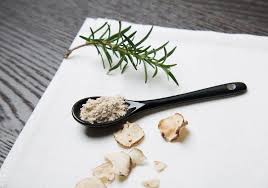Genetic and genetic mutations can certainly play a role in disease, however, poor nutrition and a sedentary lifestyle can greatly increase the risk. Gout is a common condition, but it occurs more frequently in some populations than others. For example, gout occurs in 1 percent of people with Asian ancestry, 3 to 4 percent of people with European ancestry, and 6 to 8 percent of Indigenous (native) Taiwanese peoples and Māori from New Zealand.
In about 15 percent of people with gout, urate accumulates in the kidneys
and forms kidney stones . As the condition worsens, urate crystals can also be deposited under the skin or in other soft tissue, forming a nodule called a tophus (plural: tophi). These tophi often form in the hands, elbows, or feet. Tophi do not typically cause pain, but they can become inflamed, infected, or ooze fluid. Depending on their location, tophi can interfere with movements such as walking or gripping objects.
Tag: kidney stones
Does Gout Increase The Cardiovascular Disease Risk Factor?
Cardiovascular Disease and Gout

The prevalence of cardiovascular disease continues to rise and is among the leading cause of mortality in the world. Inflammatory conditions such as Rheumatoid Arthritis and Gout are often associated with a higher risk and earlier onset of this disease. Research links gout to an increased risk of several types of cardiovascular disease, including heart attack, heart failure, and atrial fibrillation, or an irregular heartbeat. Epidemiological, experimental, and clinical data show that patients with hyperuricemia SUA are at increased risk of cardiac, renal, and vascular damage and CV events. Continue reading “Does Gout Increase The Cardiovascular Disease Risk Factor?”
Gout ‘more than doubles’ risk of kidney failure
Largest ever study on subject uses data from more than 620,000 patients in UK health system
Date: August 28, 2019
Source:University of Limerick
Summary: Patients with gout are at increased risk of chronic kidney disease and kidney failure, according to new research.
Patients with gout are at increased risk of chronic kidney disease and kidney failure, according to new University of Limerick (UL), Ireland led research.
In one of the largest and most detailed studies ever conducted, patients recruited in general practice with a diagnosis of gout were more than twice as likely to develop kidney failure than those without, according to the study led by researchers at University of Limerick’s (UL) Graduate Entry Medical School (GEMS).
Continue reading “Gout ‘more than doubles’ risk of kidney failure”Wearable sweat sensor detects gout-causing compounds
Date:November 25, 2019
Source: California Institute of Technology
Summary: Scientists have developed an easier way to mass-produce highly sensitive sweat sensors that can detect a variety of low-concentration compounds related to health conditions.
There are numerous things to dislike about going to the doctor: Paying a copay, sitting in the waiting room, out-of-date magazines, sick people coughing without covering their mouths. For many, though, the worst thing about a doctor’s visit is getting stuck with a needle. Blood tests are a tried-and-true way of evaluating what is going on with your body, but the discomfort is unavoidable. Or maybe not, say Caltech scientists.
Continue reading “Wearable sweat sensor detects gout-causing compounds”Artichoke Powder for Gout and Joint Health

ARTICHOKE POWDER (Globe Artichoke)
A relative of the hepatoprotective Milk Thistle, is popular for its pungent taste which is attributed to phytochemicals found in the green parts of the plants called cynaropicrin and cynarin, sesquiterpene lactones with documented medicinal actions. The phytochemicals in artichoke have been well documented and the leaves rather than the flower have been found to be higher in medicinal value.
Artichokes contain a very high antioxidant content, and in fact, contain two compounds (apigenin 7-rutinoside and narirutin) that are so unique they aren’t found in any other plant.
Traditional uses have included support for sluggish liver, poor digestion and atherosclerosis. Artichokes offer concentrated sources of amino acids and even help to support the natural growth of probiotics for the digestive system.
Continue reading “Artichoke Powder for Gout and Joint Health”
Gout and Kidney Disease
Chronic kidney disease (CKD)
Chronic kidney disease (CKD) limits the amount of waste filtration your body is capable of processing. Uric acid is not seen as a foreign matter to the body, therefore is usually last to be dealt with from a toxin filtering standpoint. This can allow for uric acid build-up, and, in turn, the increased likelihood of developing Gout. The medications used to treat kidney disease have also been associated with drug-induced cases of Gout. Diuretics and beta blockers are typically used for kidney disease induced high blood pressure and are well known to contribute to Gout development.
There is enough scientific research to confirm that kidney disease can cause Gout. How about the opposite? Can Gout lead to kidney disease? The chicken or the egg? Uric acid is filtered through the kidneys, an undeniable relation to both diseases. While this connection may be less established, the evidence is certainly present. Each condition is well-equipped to feed the other.
Continue reading “Gout and Kidney Disease”Gout and Kidney Stones
Kidney Stones
Kidney Stones (renal calculi) are formed as a result of a buildup of dissolved minerals on the inner lining of the kidneys. Once they make their way into the urinary tract severe pain in the groin, stomach, or flank area can ensue. A decrease in urination coupled with a large amount of stone-forming substances can cause these types of stones to appear. These stones can be formed by the mixture of calcium with oxalate or phosphate; and/or the combination of uric acid and amino acid cysteine.
Much like Gout, Kidney stones are being diagnosed more and more in recent years. The same type of stones can develop in the bladder as well, but are much more uncommon and have remained relatively low and unchanged by comparison. Over the span of almost 30 years, the Mayo Clinic observed a significant rise in the incidences of kidney stones; particularly in adult women. With more accurate CT scans our ability to monitor and diagnose stones are partly behind a good portion of this rise in cases, but also goes hand in hand with the rise in Obesity and Diabetes Type 2. Diets high in sugar, unhealthy fats, and salt have been to blame for stones and this type of diet certainly fits the profile for all of these conditions.
Continue reading “Gout and Kidney Stones”Gout and Cancer Connection?

Gout and Cancer Connection?
Is there a connection between Gout and Cancer? Gout is a common inflammatory disease with incidences largely increasing with each passing year and affecting younger and younger age groups more than ever before. Acute arthritis and hyperuricemia stems from purine metabolism dysfunction, causing urate crystals to deposit into the tissue leading to kidney stones, soft tissue growths, urate nephropathy and/or arthritis. Epidemiological studies have been conducted to estimate the potential association between Gout and Cancer risks. These studies have displayed a preeminent role of Gout in carcinogenesis.
Cellular death and higher turnover rates can bring about hyperuricemia and the formation of tumors (tumorigenesis.) Even though strong evidence exists to show the connection between high serum uric acid levels and an independent increased risk of cancer, the subject remains disputable. Continue reading “Gout and Cancer Connection?”


